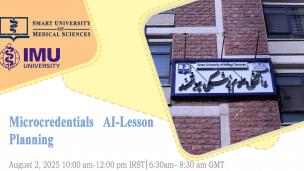Cancer is one of the most common diseases in the world that can lead to death. Low- and middle-income countries will certainly suffer more losses because the costs of treating and caring for cancer patients are staggering. Recent studies show that one out of six people worldwide died from cancer – that’s more than HIV/AIDS, tuberculosis, and malaria combined.
Cancer
The human body is made up of millions of cells that are grouped together to form different tissues and organs; cancer means the uncontrolled growth of abnormal cells in the body. It develops when the body’s normal control mechanism stops working, i.e. old cells do not die and instead begin to grow out of control, forming new, abnormal cells. These extra cells might form a mass of tissue, named a tumor. Yet, leukemia is among the cancers that does not form tumors.
There are 100 types of cancer, and the most common cancers in men are lung, esophageal, abdominal, oral and throat cancers, and among women, cervical and breast cancers.
The goal of World Cancer Day
World Cancer Day is celebrated every year on the 4th of February with the aim of raising public awareness about cancer, and educate people about the fight against cancer and its prevention and treatment.
World Cancer Day slogan
Every year, a slogan is announced for World Cancer Day. 2021 theme for Cancer Day is: “Together, all our actions matter”.
This year reminds the enduring power of cooperation and collective action. Choosing to come together means we can achieve what we all wish for: a healthier, brighter world without cancer.
Cause of Cancer
In 90 to 95% of cases, genetic mutations and environmental factors cause cancer; in the remaining 5 to 10 percent, heredity is involved. Researchers refer to environmental factors as factors that are not genetically inheritable; Common environmental factors that can lead to death from cancer include:
- Obesity: The World Health Organization has stated that obesity is a major cause of cancer, especially in developed countries. The United Nations has also reported an increase in obesity-related cancers in developed countries. In 2012 alone, obesity in developed countries caused 481,000 people in these countries to be diagnosed with cancer, especially among women.
- Smoking: Another cause of cancer is smoking. Smoking plays a key role in causing cancer of the airways. 90% of lung cancers are caused by smoking.
- Alcohol Consumption: It increases the risk of cancers of the mouth (other than the lips), larynx, and esophagus and due to alcohol cirrhosis. Consumption of sugar is prohibited during cancer treatment because cancer cells can better infect other tissues in the body by consuming sugar. This means that cancer cells become stronger with the consumption of sugar and multiply faster.
- Foods: A study by Food Standards Agency in the UK shows that when carbohydrate foods are exposed to high temperatures, they produce a toxin called acrylamide, which is carcinogenic, which is why researchers believe that excessive consumption of toast (toasted bread) ) Increases the risk of cancer. According to the International Agency for Research on Cancer (IARC), pork and its products, such as smoked meats, hams, pork sausages and other processed meats containing these substances, increase the risk of cancer as much as smoking.
- Rays: Some rays, such as the sun's ultraviolet rays, cause cancers such as skin cancer.
In addition to what has been said, there are other factors that increase the risk of cancer. These factors include:
- Age increasing
- Stressful lifestyle
- Poor nutritional status due to low consumption of fruits and vegetables
- Tobacco
- Chronic infections
Some general methods such as non-smoking, eating healthy food, avoiding teratogenic agents (some industrial chemicals such as asbestos, ionizing radiation such as working in radiology, sunlight, etc.), exercising and avoiding high-risk sexual behaviors in preventing Cancers are effective. Recent studies show that lifestyle and environmental factors are responsible for 70 to 90% of cancers. That's why experts believe that cancer can be avoided with a healthy lifestyle.
Symptoms
Cancer has no symptoms at first. Signs and symptoms appear when the cells have grown and taken root. The symptoms of this disease depend on its type and location, many of these symptoms are common to all cancers and some of the symptoms are specific.
Also, there are some symptoms during cancer that do not just appear at the site of the tumor but affect the body in a general and systematic way, including unwanted weight loss, fever, extreme tiredness, and skin changes


